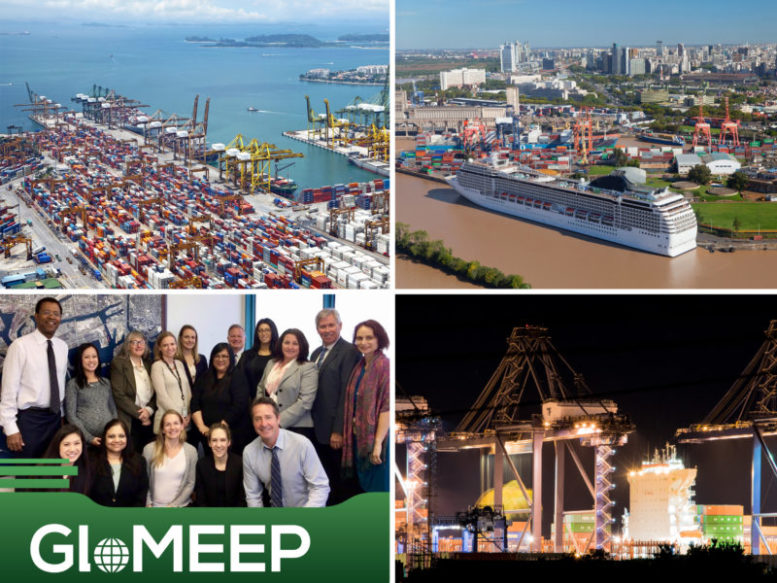How can ports cut emissions to ensure cleaner air and contribute to the battle against climate change? First, ports need to quantify emissions in ports, and they need to identify measures to cost-effectively reduce port-related emissions. A strategic partnership between the IMO-executed GloMEEP energy efficiency project and the International Association of Ports and Harbors (IAPH) is helping selected countries to develop port emission inventories and subsequently draw up a port emission reduction strategy.
A new three-day workshop package on the “Prevention and control of shipping and port air emissions” is being developed as part of the GloMEEP-IAPH strategic partnership. Training will begin in May 2018, and will be rolled out to the ten lead pilot countries participating in the GloMEEP project. The workshops will train port personnel on how to develop an inventory of emissions in a port, and subsequently how to develop a strategy to address emissions from ports, based on two technical guides which are also being developed (Guide for assessment of emissions in ports; and Guide for the development of port emissions reductions strategies).
The workshop package is designed for port personnel and aims to increase their awareness about maritime energy efficiency from a port perspective and show how port management, port infrastructure development and port logistical systems contribute to overall maritime energy efficiency and air quality.
The GloMEEP team, Astrid Dispert and Minglee Hoe, met (19 March) with experts representing IAPH, from the Port of Los Angeles, the Port of Long Beach and Starcrest Consultancy Group, to further develop the draft workshop package and guides.
GloMEEP technical adviser Astrid Dispert outlined the prospective new training course and the ongoing collaboration between GloMEEP and IAPH at the 5th Pacific Ports Clean Air Collaborative (PPCAC) Conference, hosted by the Port of Los Angeles, United States (20-22 March).
GloMEEP is a GEF-UNDP-IMO project aimed at supporting the uptake and implementation of energy efficiency measures for shipping, thereby reducing greenhouse gas emissions from shipping.
The Lead Pilot Countries of the GloMEEP project are: Argentina, China, Georgia, India, Jamaica, Malaysia, Morocco, Panama, Philippines, and South Africa.
